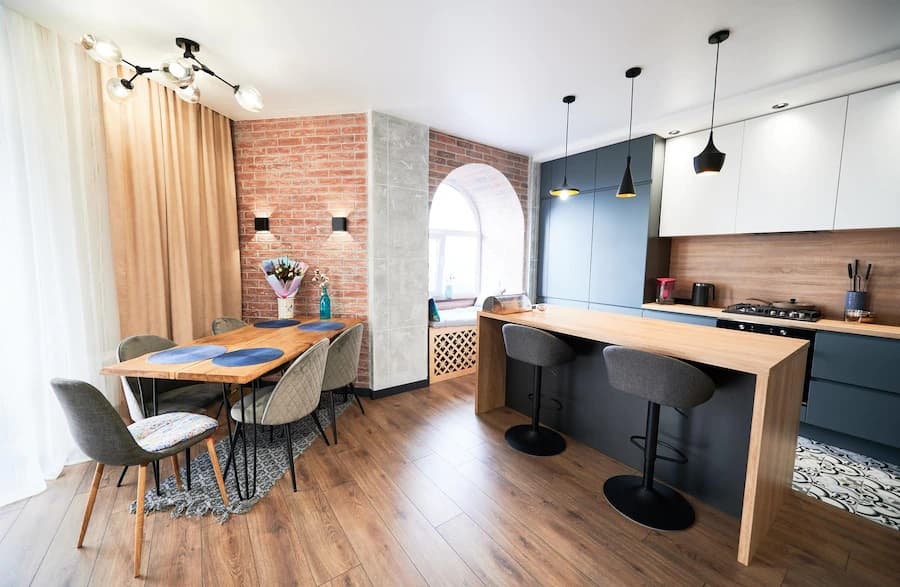When selecting furniture, one of the most common debates is laminate or veneer furniture. Both materials have unique advantages and drawbacks, and choosing the right one depends on durability, cost, maintenance, and aesthetic preferences. Whether furnishing a hotel, office, or home, understanding the difference between laminate and veneer is essential.
Hotels and businesses require high-quality, durable furniture that can withstand daily use while maintaining its aesthetic appeal. But which material offers the best balance of affordability, durability, and style? To help you decide, this guide compares laminate vs veneer furniture, breaking down their key differences and best use cases for commercial and hospitality spaces.
Table of Contents
Toggle- Understanding the Difference Between Laminate and Veneer
- Durability and Maintenance: Which One Lasts Longer?
- Cost Comparison: Which is More Budget-Friendly?
- Best Uses: Hotel, Commercial, or Residential?
- Final Verdict: Should You Choose Laminate or Veneer Furniture?
- The Advantages of Custom Luxury Hotel Furniture
- The Importance of Custom Hotel Furniture in Enhancing Guest Experience
- The Ultimate Guide to Finding Top Hotel Furniture Suppliers in Turkey
- Importance of High Quality Furniture in Hotels
- The Impact of Furniture Design on Hotel Guest Experience
- High Quality Furniture in Hotels: Essential for Guests
- The Role of Furniture in Defining Hotel Aesthetics
- The Evolution of Hotel Furniture Design Over the Years
- How to Choose the Right Upholstery for Hotel Furniture
- The Impact of Furniture Design on Guest Experience in Hotels
- Hotel Furniture and Design: Enhancing the Guest Experience
- Premium Hotel Furniture in Turkey: Elevate Your Hotel’s Interior Design
- How Do Hotels Get Furniture in the Rooms | Hotel Solutions
- Hotel Furniture Concept | Perfect Products for Your Hotel
- Top 5 Benefits of Turkish Made Hotel Furniture
- What makes a good faux leather?
- Furnishing an Apartment: 6 Tips for Choosing the Best Furniture
- Types Of Hotel Furniture You Need
- Why Turkish Made Hotel Furniture is the Best Choice for Your Business
- What is fixed furniture?
- Maximizing Your Hotels ROI with High-Quality Furniture Solutions
- Benefits of Custom Made Furniture
- Hotel Furniture Buying Guide
- Where Do I Buy Hotel Furniture in Turkey?
- How to Make a Hotel Room Feel Like Home
- How Often Do Hotels Change Their Interiors?
- A Good Hotel Furniture Manufacturer
- 7 Signs Your that Hotel Needs Renovation
- What Factors Will Affect Hotel Furniture Prices?
- MDF cutting machine
- What are the Basic Furniture Required to Set Up a Hotel?
- What is Crib 5?
- Four Ways to Maintain Hotel Room Storage
- Characteristics of a Custom Hotel Furniture
- Popular Materials for Luxury Hotel Furniture Manufacture
- The Four Characteristics of a Hotel Furniture Design
- 4 Key Considerations for Hotel Furniture
- Hospitality Design Mistakes That Are Common
- Hotel Furniture Quality Control Checklist
- Things Your Hotel Furniture Manufacturer Should Provide
- Why we use 3D Renderings in Furniture Design
- Advantages of Custom Hotel Furniture
- Important Questions to Ask a Potential Hotel Furniture Supplier
- What Are the Guides to Contract Furniture?
- Things to consider when choosing a hotel furniture manufacturer
- Wood Veneers and Laminate Casegoods
- Wooden Furniture Care
- Hotel Furniture Buying Guide
- What Types Of Wood Are The Best For Your Luxury Sofa?
- Hotel Furniture Cushion Upholstery Care
- Leather Furniture Care; Maintaining Your Hotel Furniture
- Ten Tips for Hotel Lobby Design
- Starland Hotel Cameroon
- Hotel Furniture Turkey
- The Best Hotel Furniture Suppliers
- Hotel Furniture Manufacturers in Turkey
- Four Mistakes While Buying a Restaurant Furniture in Turkey 2021
- Selecting Booth and Sofa Seating Made in Turkey
- 10 Restaurant And Cafe Furniture Ideas From Turkey
- Five Most important Materials in Hotel Furniture Industry
- Hotel Renovations: Luxury Hospitality Furnishings made in Turkey
- How to Maintain Hotel Furniture for 10+ Years
- Commercial VS Residential Furniture Made in Turkey
- Hotel Furniture Manufacturing Industry in Turkey
Understanding the Difference Between Laminate and Veneer
1. What is Laminate Furniture?
Laminate furniture is made from synthetic materials bonded together using high-pressure lamination techniques. It mimics the appearance of real wood grain furniture but is constructed using layers of paper or plastic resin.
Pros and Cons of Laminate Furniture
✅ Pros:
- Durability of laminate furniture is high—resistant to scratches, stains, and moisture.
- Affordable hotel furniture material, offering budget-friendly options.
- Low-maintenance furniture that’s easy to clean with a damp cloth.
- Commercial-grade laminate furniture is designed for high-traffic areas.
❌ Cons:
- Can look less natural than wood veneer furniture.
- Difficult to repair if scratched or chipped.
- Cannot be refinished or sanded down like veneer.
2. What is Veneer Furniture?
Veneer furniture is made by applying a thin layer of real wood to a core material, such as MDF or plywood. This gives it the appearance of solid wood while being lighter and more cost-effective.
Pros and Cons of Veneer Furniture
✅ Pros:
- Luxury furniture material that looks like solid wood.
- More sustainable than solid wood furniture.
- Can be refinished to extend lifespan.
❌ Cons:
- Moisture-sensitive—prolonged exposure to water can damage the veneer.
- Scratch-resistant furniture but not as durable as laminate.
- Higher cost compared to laminate.
Durability and Maintenance: Which One Lasts Longer?
3. Durability of Laminate vs Veneer Furniture
For hotels, offices, and commercial settings, durability is a top concern.
- Laminate vs veneer durability: Laminate is more resistant to scratches, moisture, and daily wear and tear.
- Best furniture for hotels: Many hospitality furniture material options include commercial-grade laminate furniture for durability.
- Veneer requires more maintenance to keep it looking new, as it can chip or peel over time.
4. Maintenance and Cleaning
If you need easy-to-clean furniture, laminate is the better choice.
- Laminate furniture cost vs veneer furniture cost is lower due to low maintenance requirements.
- Veneer requires polishing and occasional refinishing.
- Laminate is resistant to stains and spills, making it ideal for hotels and restaurants.
For budget-friendly hotel furniture, laminate is the most practical solution.
Cost Comparison: Which is More Budget-Friendly?
5. Laminate Furniture Cost vs Veneer Furniture Cost
- Laminate furniture is generally cheaper due to its synthetic construction.
- Luxury veneer furniture is more expensive because it uses real wood layers.
- Hotel furniture pricing trends show that laminate is often used in budget hotels, while veneer is preferred in high-end hotels.
For hotel renovation furniture budgets, laminate is the more cost-effective option.
Best Uses: Hotel, Commercial, or Residential?
6. Best Material for Hotel Furniture
Choosing between laminate or veneer furniture depends on where it will be used.
- Commercial-grade veneer furniture is ideal for luxury hotels, executive offices, and upscale dining areas.
- Laminate is better for hotel room furniture, restaurant tables, and office workstations due to its affordability and durability.
Hotels that focus on modern aesthetics and long-term durability often mix both laminate and veneer furniture based on the needs of different areas.
Final Verdict: Should You Choose Laminate or Veneer Furniture?
The decision between laminate or veneer furniture depends on your budget, durability needs, and aesthetic preferences.
- If you need affordable, low-maintenance, and moisture-resistant furniture, laminate furniture is the better choice.
- If you prefer a luxury look, can handle refinishing, and want a more natural appearance, veneer furniture is the better choice.
For hotels and businesses, combining laminate for high-traffic areas and veneer for premium spaces creates the perfect balance of cost and aesthetics.



